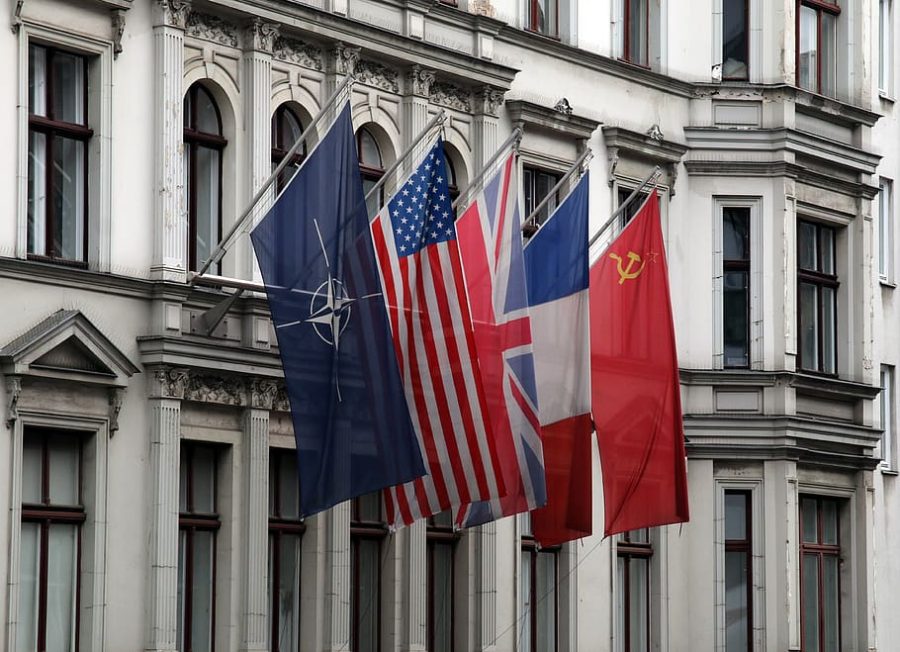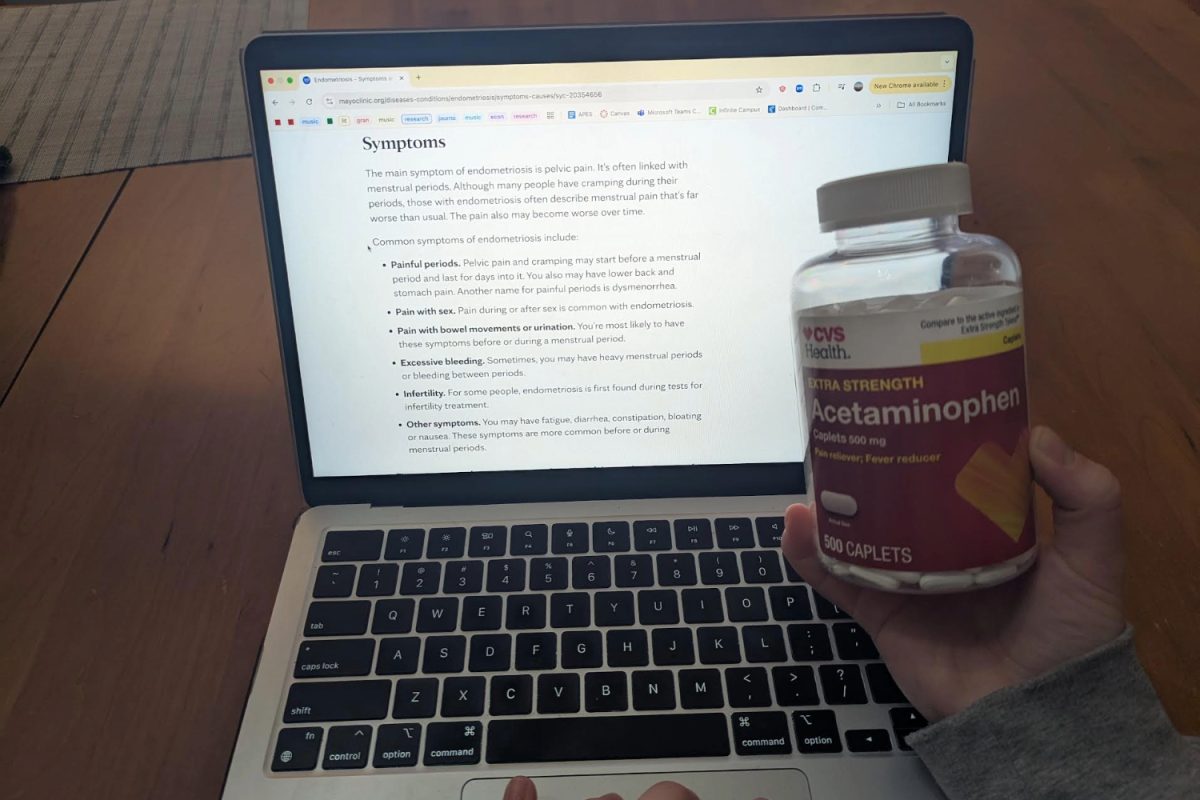Economic sanctions imposed by countries, companies, and organizations around the world against Russia have put Russian president, Vladimir Putin, in a difficult situation on the world stage, but he doesn’t seem to be considering halting his invasion of Ukraine.
As of March 23, more than 15,000 Russian troops have been killed since the invasion of Ukraine. According to USA Today, this number could be much higher as the Kremlin has been suspected of hiding the true death count of soldiers in Ukraine.
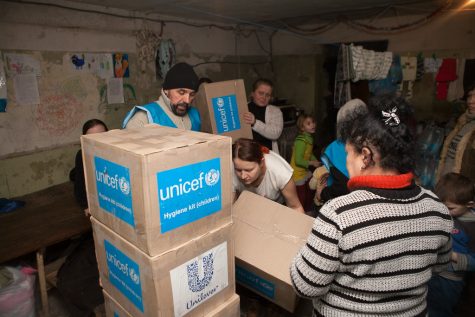
Ukrainian civilians currently find themselves far from home. From living in bunkers to camping out in forests, Ukrainians are eager to return to their cities. Despite the waning food supplies and resources, many are trying to make the best of their situation.
Valeria Shashenok, a Ukrainian citizen, utilizes TikTok to share videos about her life in an underground bunker in the northern Ukrainian city of Chernihiv.
For others, it has been a bit more difficult to cope with living in such unusual environments. A month into the war, millions of families have been separated or displaced. More than three million Ukrainians have fled the country to seek refuge from Russian aggression, according to the New York Times.
The people of Russia aren’t faring much better than their Ukrainian counterparts, as some Russians can no longer afford basic necessities such as food and clothing. Shelves have been emptied in Russian supermarkets, exhausting an already limited supply.
Most international food and store chains have officially shut down in Russia, so Russian citizens have started crowding their local Sephoras to collect what’s left of trending make-up products. McDonalds has allegedly sold extremely overpriced meals to Russian citizens just days before shutting down, according to NewsNation.
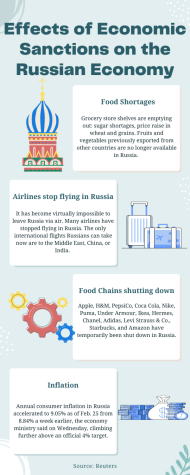
It is clear that sanctions imposed by the U.S. and other European nations are greatly impactful on the lives of ordinary Russian citizens, but are the sanctions going to stop this war? It’s unlikely.
The U.S. has turned Russia into the most sanctioned nation in the world overnight. The goal of economic sanctions is to financially handicap Russia so it is no longer able to pay for the war.
So far, NATO has been very successful in its strategy of economic warfare. The war cost Russia as much as $7 billion through the first five days, and that figure could increase.
According to Bloomberg, the Russian G.D.P has already dropped around 11% and is predicted to drop 30% if the war continues for the rest of the year. The economic situation in Russia could then be comparable to America’s during the Great Depression in 1930.
Starvation and mass poverty will become a new reality for Russian citizens, and unfortunately, Putin doesn’t seem to have any intention to shield them from the brunt of this war.
It has become very clear that sanctions won’t put an end to this conflict. Some experts even claim that harsh economic sanctions may lead to a bigger disaster.
During World War II, the United States and other European nations implemented harsh economic sanctions on Japan to weaken the strength of the economy and military. While they were successful in weakening the Japanese economy, the sanctions only impacted the poorest citizens.
There is a possibility that when Putin runs out of financial backing for his invasion, he may increase reliance on his air force or turn to his bountiful nuclear arsenal.
By placing heavier economic sanctions on Russia, the Unites Sates could simply be pushing Putin to take more radical decisions.
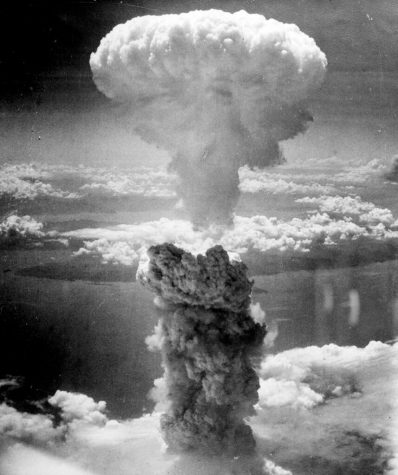
Not only are economic sanctions ineffective in stopping this crisis, but they’re also taking a toll on the global economy. In the U.S., gas prices have skyrocketed to unprecedented levels. In some states, citizens are paying nearly seven dollars per gallon. Yet, the United States has had the mildest effects of the gas price hike as the U.S. only buys roughly 8% of its gas from Russia.
European economies have taken the real economic impact of their own sanctions. Europe relies on Russia for about 40% of its gas imports. In Germany, for example, citizens are currently paying the equivalent of nine dollars per gallon for gas.
By imposing sanctions, European nations are sacrificing their own economies for the weakening of the Russian economy. Putin seems to be aware of global reliance on Russian gas, wheat, metals, and other valuable products. As of now, he’s waiting to see which nations will cave first.

